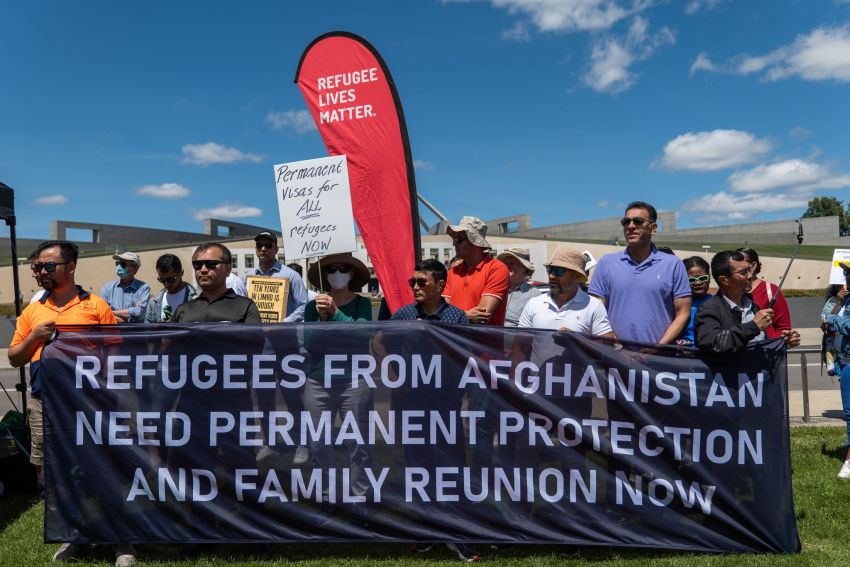
For refugees, people seeking asylum and their supporters, 2022 was a difficult year. But progress has been made.
At the start of last year, the brief immigration detention of leading tennis player Novak Djokovic at the Park Hotel helped the refugee rights movement’s efforts to highlight the situation for hundreds of refugees detained there and in other hotel “alternative places of detention” (APODs).
The release of refugees from these APODs, who had been brought to Australia from offshore detention under the 2018 medical evacuation law, accelerated. By April the Medevac refugees were out of the APODs, although some are still in detention centres.
The former Scott Morrison government announced in March an additional 16,500 places for people fleeing Afghanistan.
However Rural Australians for Refugees (RAR) is conscious — especially the national working group and the member groups that are working on sponsorship for refugees trying to come here — that so far few Afghan refugees escaping the Taliban have reached Australia.
The decade-long re-orientation of the federal immigration department into Border Force has wrecked its capacity to serve people and we have to keep pushing the current government to reverse this.
The purportedly immovable Coalition government was moving, as it stared down the barrel of election defeat. But, I think, voters proved to be wise to cheap tricks: they took what was on offer and moved on.
The new Labor government allowed Priya, Nades, Kopi and Tharnicaa Murugappan to return home. We are cheered that they are living among their friends in Biloela and have gained permanent residency.
But other refugees, on temporary visas, who Labor promised permanent visas during the election campaign, are still waiting.
It is troubling that well over 10,000 other people who are seeking asylum here, because their claims for asylum have been rejected, or because of how they came to Australia, are not being offered permanent settlement at all.
Our movement has been supporting permanent visas for all, with #HometoBilo turning its strength to this campaign.
RAR members can be proud of the achievements of our September national conference, held in Katoomba with the support of the Blue Mountains group.
It was an inspiring experience, perhaps the only refugee rights in-person grassroots national conference since the pandemic began, also because those with lived experience played a leading role.
The conference issued The Katoomba Declaration to try to change the story about refugees and seek to change a broad range of policies.
It expresses the basis for a more united, powerful and far-reaching movement for which November’s Canberra Convergence and Palm Sunday marches and rallies, to be held in early April, could represent green shoots.
[Jonathan Strauss is the national President of Rural Australians for Refugees. This is an abridged and slightly edited version of a letter he sent to RAR members.]